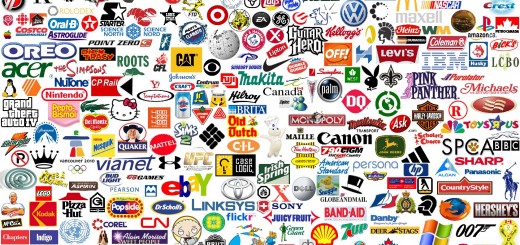The growing politicization of brands in a polarized world
Target, for instance, chose to weigh in on a 2016 North Carolina law that required individuals in government buildings to use the restroom that corresponds to the gender specified on their birth certificates. The law sparked debate around the country and in response, Target announced that its policy was to allow customers to use the bathroom of their choice based on which gender they identify with. “At the end of the day, Target is all about inclusion. We want everyone to feel comfortable in our stores,” the company stated.
Not surprisingly, Target’s announcement was met with praise and criticism, and a firestorm ensued. Critics called for a boycott of Target, and boycott leaders claim to have collected nearly 1.5m signatures online. Since Target made itself a center of controversy, its sales have fallen by more than 7%, but while the company acknowledges that it’s difficult to pinpoint the exact causes of the sales decline, it believes the decline isn’t related to its bathroom policy. Boycott organizers, not surprisingly, disagree.
In an apparent effort to appease everyone, Target has since announced that it plans to spend $20m building single-toilet bathrooms at more of its stores.
Brands do battle
Target isn’t the only brand that has found itself in a politically-charged fight. A boycott of Breitbart, a conservative news site that has drawn criticism from the left, has reportedly resulted in more than 800 advertisers agreeing to pull ads from the site, which has been accused of publishing racist and hateful content, among other things. These include major brand advertisers like Audi, Charles Schwab, CVS, REI and Kellogg’s. In response, Breitbart launched a #DumpKelloggs boycott of its own, which it claims has garnered over 400,000 signatures online.
Battles like this seem to be increasingly common. Case in point: following President Trump’s executive order temporarily halting immigration and travel from seven nations, Starbucks chairman and CEO Howard Schultz, who had made no secret of his disdain for Donald Trump and support for Trump opponent Hillary Clinton prior to the presidential election, announced that Starbucks would aim to hire 10,000 refugees over the next 10 years.
In his announcement, which was sent to Starbucks employees with the title, “Living Our Values in Uncertain Times,” Schultz also commented on the Deferred Action for Childhood Arrivals (DACA) program and President Trump’s plans to build a border wall with Mexico, two politically-charged topics.
As one would expect, Starbucks’ move drew praise from those who agree with Schultz’s positions and criticism from those who disagree with him. Not surprisingly, the former rallied to state that they’ll support Starbucks while the latter called for a boycott of the coffee chain.
Had a @Starbucks latte this morning. If you support refugees, I support you. Thanks #Starbucks
— Kat (@mockingjay617) February 2, 2017
But Starbucks’ move didn’t just draw a response from consumers. In response to the firestorm, Black Rifle Coffee Company (BRCC), a “veteran owned, small batch, roast to order coffee company” based in Salt Lake City, Utah, announced that it would hire 10,000 veterans.
Our mission has never changed. Spread the word and join the coffee revolution. pic.twitter.com/g7WMB6iZqG
— Black Rifle Coffee (@blckriflecoffee) February 3, 2017
In a press release and on Twitter, the company took aim at Starbucks, and the company has since seen its message go viral. While it’s not clear that BRCC has the scale to follow through on its goal, the company’s website currently states “Due to an increase in demand for Black Rifle Coffee customers will experience delays of two weeks in shipping timelines,” so it would appear that the company’s message has resonated with some consumers.
What’s more, BRCC’s campaign appears to have attracted Starbucks’ attention, as the world’s largest coffee chain posted “A Message to Customers from Starbucks Armed Forces Network” that aims to “set the record straight” about the company’s support for veterans.
The problem with brand politics
As the Wall Street Journal notes, “until recently it wasn’t necessarily a bad thing for a company to wear its political leanings on its sleeve.” For years, many companies have supported causes that are directly related to politics or have political overtones. But in today’s highly-polarized environment, it’s increasingly difficult for brands to make statements that are political, or could be construed as being political, without creating controversy.
In reality, many of the most polarizing topics today, such as immigration, are highly complex and nuanced. It’s simply not possible for brands to craft simple messages around them that aren’t bound to offend large numbers of people who hold reasonable but opposing views. Given the amount of hyperbole and spin present in today’s media landscape around these topics, brands are all but asking for controversy when they try to make simple statements about complex matters, no matter how well-intentioned they are in doing so.
Some argue that the impact of such controversy is still minimal, if it exists at all. For every person who boycotts Starbucks, for instance, another person will support Starbucks. Or so the thinking goes. But as the Target case study demonstrates, it’s hard to correlate political controversy, and the increasingly common boycotts that accompany it, with sales increases or declines. That means it’s all but impossible for brands to quantify and analyze the risks, short-term and long-term, of their politically-charged statements and initiatives.
Major brands that serve millions of consumers should recognize that their customers come from all walks of life and more often than not can’t be easily segmented based on their beliefs around the most personal and political subjects.
This doesn’t mean that brands shouldn’t live their values to quote Starbucks’ Schultz, but brands should also consider that there’s a huge difference between true values and political positions and consider how their statements, initiatives and decisions can unnecessarily conflate the two, dividing their customers and turning themselves into political props in the process.
Perhaps it’s time for brands to add humility to the list of values they prioritize, especially in light of the fact that according to a Havas Media Group study, consumers “wouldn’t care” if nearly three-quarters of the brands they use “just disappeared.”


